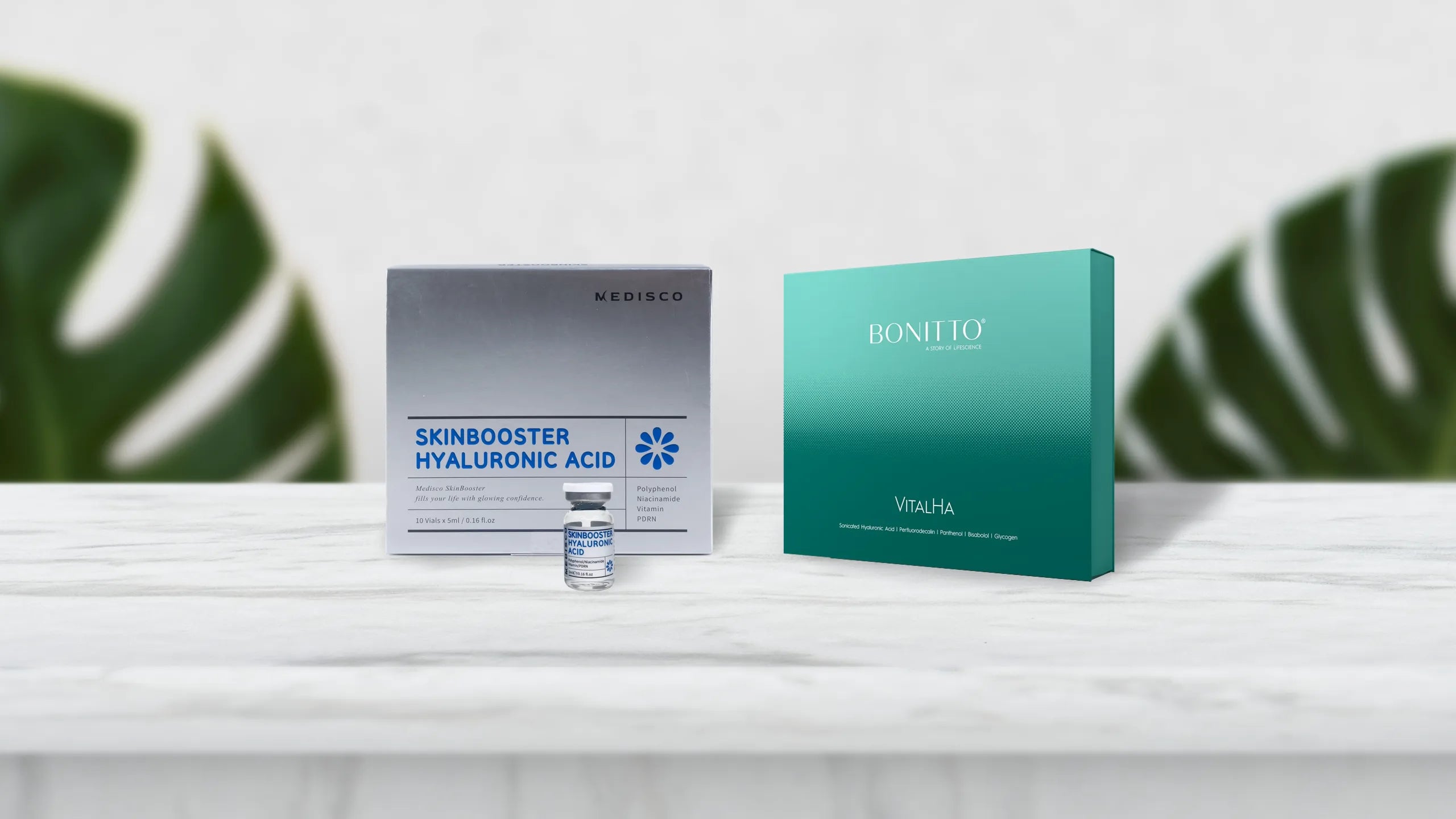This kit soothes redness, accelerates healing, and hydrates deeply, using a blend of ingredients to calm, repair, and improve skin texture after aesthetic treatments

Microneedling has become a go-to treatment in skincare clinics and at home, known for its ability to rejuvenate skin, reduce scars and improve texture. When paired with a powerful hydrating ingredient like hyaluronic acid, its benefits multiply.
Microneedling with hyaluronic acid is a popular combination because it supports healing, boosts hydration, and enhances skin-plumping effects.
Now, you may want to learn more. In this guide, we'll explore how the treatment works, what kind of results to expect, and why hyaluronic microneedling might be the next step in your skincare journey.

Let's first start off with the basics. Microneedling, also known as collagen induction therapy, is a cosmetic procedure that uses fine needles to produce regulated micro-injuries in the skin. These tiny punctures activate the body's natural healing process, resulting in collagen and elastin production. Over time, your skin gets firmer, smoother, and evener in tone, giving it a fresh and healthy look.
The treatment works to reduce acne scars, fine wrinkles, enlarged pores, and even moderate discoloration. It can be done professionally or at home using approved technologies such as the Dr. Pen systems, depending on the depth and intensity. When combined with the right serums, such as hyaluronic acid for microneedling, results can be even more impressive than you had originally expected.
Hyaluronic acid, also known as HA, is a naturally occurring molecule in the skin that can store up to 1,000 times its weight in water. It promotes skin plumpness, hydration, and elasticity. However, as we age, our HA levels drop, resulting in dryness, dullness, and the appearance of fine lines or wrinkles.
This is where adding hyaluronic acid to your skincare regimen plays a huge role. In microneedling hyaluron-based treatments, pure hyaluronic acid is applied during or immediately after microneedling to penetrate the skin more deeply. The microchannels created by the needles allow the HA to reach the lower layers of the epidermis, where it works more effectively to hydrate and repair. Pure hyaluronic acid for microneedling is preferred because it's gentle, non-irritating, and highly compatible with the skin's natural makeup.
Since we've gone over the basics, let's move on to the procedure and how it's done. Microneedling with hyaluronic acid usually starts with a thorough cleansing of the skin to remove makeup, debris, and oil. A topical numbing lotion may be used to ensure comfort throughout the procedure, particularly in clinical settings with deeper needle penetration.
After the skin has been prepped, amicroneedling device, such as a Dr. Pen dermaroller or a motorized pen, is softly dragged across its surface. Tiny needles generate microchannels, which stimulate collagen formation and improve serum absorption. Hyaluronic acid for microneedling is administered either right before needling (to help the device glide and increase comfort) or immediately after, allowing the product to penetrate deeply into the channels.
At-home devices use shorter needles, typically ranging from 0.25mm to 0.5mm, and are often combined with pure hyaluronic acid for hydration and glow. Professional treatments go deeper, making them more suitable for treating advanced skin concerns like scarring and wrinkles.
Following the treatment, there may be mild redness and sensitivity, similar to a minor sunburn. Over the next few days, you can expect the skin to heal, regenerate, and improve in tone and texture. During this period, using hyaluronic microneedling solutions to keep the skin moisturized helps maximize comfort and outcomes.

When you combine microneedling with hyaluronic acid, you get the best of both worlds: collagen stimulation and deep hydration. This duo supports skin renewal, enhances elasticity, and helps reduce fine lines. It's especially effective for dry, dull, or aging skin. Here are some of the top benefits that come from this combination:
This combo treatment is ideal for users wanting a more youthful glow without invasive procedures or long downtime.
While generally safe for most skin types, microneedling with hyaluronic acid is not suitable for everyone. You should avoid the procedure if you:
Always consult with a dermatologist or qualified skincare professional before starting any new treatment, especially if you have sensitive or reactive skin.
For optimal results, microneedling with hyaluronic acid is typically done in a set of treatments. Most professionals recommend:
At-home treatments with shorter needles can be done weekly or biweekly, but consistency is key. It's also important to always use pure hyaluronic acid for microneedling to prevent irritation from added fragrances or harsh preservatives.
Results usually begin to show within the first few sessions, but the most dramatic changes occur after 6 to 12 weeks as collagen builds up in the skin. Maintenance sessions every few months are beneficial and can help preserve the results long-term.
Microneedling with hyaluronic acid is a powerful combination for anyone looking to boost hydration, improve skin tone, and reduce the appearance of fine lines and texture. Whether done at home or in a clinic, this treatment delivers visible, lasting results with minimal downtime.
Ready to glow from within? Contact Dr. Pen today or exploreDr. Pen's trusted devices for effective at-home care!
How to Choose a Microneedling Regimen by Age: 20+, 30+, 40+, 50+
Learn how microneedling supports skin health in your 20s, 30s, 40s and 50s. Match needle depth, goals and recovery to your age
Makeup for Mature Skin: Tips That Really Work
Discover makeup tips for mature skin, from lightweight foundation to microneedling support, for a smoother, brighter, and natural finish.